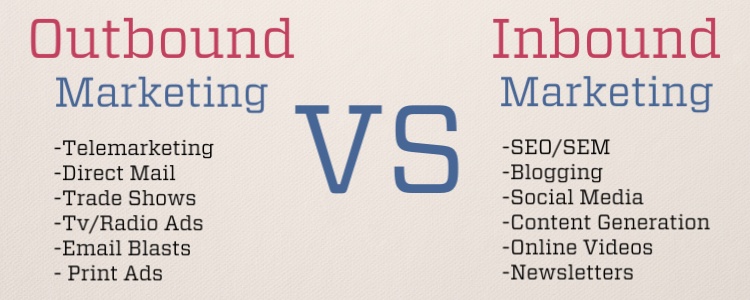How to Use Inbound Marketing to Drive Your Online Traffic
Implementing an inbound marketing strategy can help a small business grow and save money. The benefit of inbound marketing is that it doesn’t feel like marketing.

When you need to search for a product or service, you are being marketed to and may not even realize it. With outbound marketing, you are often times inundated with advertisements, commercials, direct mail, or other intrusive methods. Experts widely agree that with inbound marketing, the potential for delivering results is better than with outbound marketing.
Marketing professional services like medical, dental, or law practices can be tough. In smaller towns, you could rely on word of mouth, but when you're doing business in a large city, you're going to need to stand out from the crowd. A comprehensive approach to online marketing known as inbound may well be the answer you're looking for.
Put Your Business In Front Of Those Looking For It
Inbound marketing is actually a family of marketing activities that start with a great website and extend to content marketing and business blogging, SEO, social media marketing, and paid advertising, to name just a few elements of this type of marketing.
Since the modern-day consumer is more likely to find your business online, inbound marketing capitalizes on that and works to make your business more visible and cement your status as an expert so that customers can find you when they need you.
It Starts With An Optimized Website
Inbound marketing has been proven to deliver over three times the marketing ROI for small businesses when implemented correctly, but that starts with a well-designed and optimized website.

Think of your site as a net that is designed to capture online traffic that is already looking for the services you offer. If that is the case, then an optimized website is the frame on which all of your online traffic generation efforts are based.
Content Is Still King
Ever since the internet first became a marketing option a couple of decades ago, marketers have known that content is king. That's still true today, but thanks to changes in online marketing and how search engines work, it's no longer a matter of quantity. Instead, today's content should be consistent, prolific, high quality, and well-optimized for search engines and customers.
That's because today, more than ever before, search-engine optimized also means end-user optimized.
Images Are Worth A Thousand Words
The text content of your website is important to the user experience and to the search engine ranking and authority of your website, but that does not mean that images and graphics have fallen by the wayside.
Far from it. In today's tough and competitive online arena, the images and graphics you use on your website, as well as their format, resolution, and alternative text, among other technical elements. Make sure that you use great images and graphics, and that you are legally able to use them!
And Asking For Business Is Still Key
Anyone who has sales and marketing training knows that the single most important thing you can do to get more business is to ask for the sale. The online arena is no different, and while you might be getting lots of online traffic, you might be missing out if you're not following through.
In the online and inbound marketing arena, asking for business means implementing a CTA or call-to-action on every page, post, and pop-up. It may take some trial and error to find the right message, placement, and appearance for your CTAs, but once you've mastered them, you should see a noticeable spike in appointments or contacts from your site.
Constant Evolution
Perhaps more important than any of these single elements of inbound marketing, however, is the knowledge that inbound marketing is changing all the time. What worked two years ago is obsolete today, and what's important today may be less so tomorrow.
If you can stay ahead of the game, however, you simply cannot beat inbound marketing for delivering targeted, qualified leads to your website, and through the doors of your practice. Keeping all the benefits of inbound marketing in mind, it's not hard to see how any business can benefit from adding inbound marketing to their current marketing strategy.


